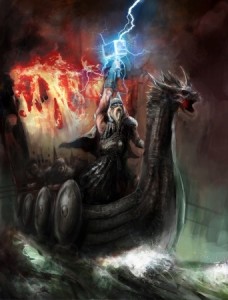
60 Minutes broadcast a segment on treating depression in February of 2012 that is still causing ripples of controversy. Two of the individuals interviewed, Irving Kirsch, a Harvard psychologist and Walter Brown, a psychiatrist with Brown University, challenged the two accepted pillars of current depression treatment. Kirsch said: “The difference between the effect of a placebo and the effect of an antidepressant is minimal for most people.” According to Brown, “The causes of depression remain a mystery.”
The chemical imbalance theory, which has guided the pharmaceutical industry in developing new drugs since the 1960s, is “probably incorrect.” Brown added that the experts in the field, the academic people who do research on drugs, now believe that the chemical imbalance theory is “a gross oversimplification.” If the neurotransmitters serotonin, norepinephrine, dopamine have anything to do with depression, “it’s of a minor role and probably sets the stage for depression. But they’re not the cause of depression. I think we know that now.”
Yet the chemical imbalance theory is still widely taught in medical schools. Many psychiatrists and mental health professionals still believe it. “The problem in psychiatry is that we don’t have a lot of tools. And if the only tool you have is a hammer, you treat everything as if it is a nail.”
Irving Kirsh has been doing research into the placebo effect for over 35 years. His original research intent with antidepressants was to evaluate the size of the placebo effect with antidepressants. He was a believer in the efficacy of antidepressants and he used to refer people to get antidepressant prescriptions. “I didn’t change the focus of my work onto looking at the drug effect until I saw the data from our first analysis.”
In a 1998 study, Kirsch found that 75% of the response to antidepressants was duplicated by placebo. He did a follow up study in 2002, where he analyzed the data submitted to the FDA for the six most widely prescribed antidepressants approved between 1989 and 1999: Prozac (fluoxetine), Paxil (paroxetine), Zoloft (sertraline), Effexor (venlafaxine), Serzone (nefazodone), and Celexa (citalopram). He found a small but significant difference between the antidepressant drugs and inert placebo. “If the drug effect is as small as it appears … then there may be little justification for the clinical use of these medications.”
Leslie Stahl challenged Kirsch, saying that people are getting better by taking antidepressants. He agreed. “People get better when they take the drug. But it’s not the chemical ingredients of the drug that are making them better. It’s largely the placebo effect. . . . The only place where you get a clinically meaningful difference [with an antidepressant] is at these very extreme levels of depression.” The placebo effect is stronger with mild depression.
Both Kirsch and Stahl cautioned that antidepressants should not be stopped cold turkey. Leslie Stahl said that individuals who take antidepressants, and feel better as a result, will likely continue to take them. But she worried about the side effects. For some people there are serious side effects. “And if a sugar pill is just as good, how can we keep prescribing these pills?”
For more information on antidepressants, see: “Antidepressant Withdrawal or Discontinuation Syndrome?” and “Antidepressants: Their Ineffectiveness and Risks” under the Resources: Counseling Issues menu.





